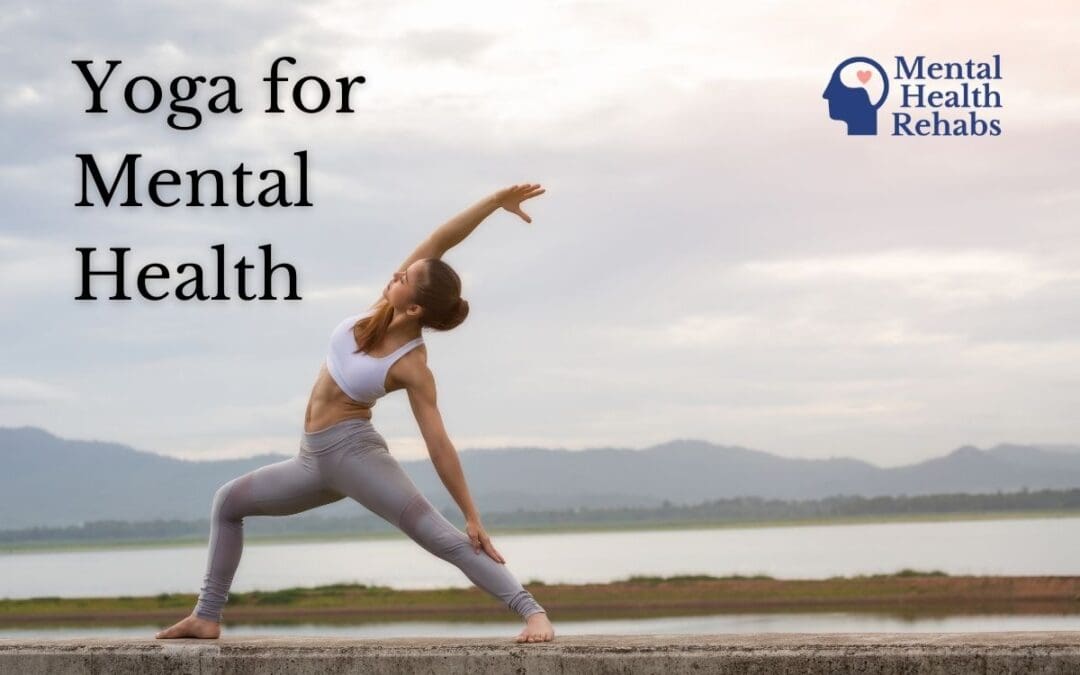Yoga is an ancient practice that combines physical movement and mindfulness. It’s a low-impact exercise that can help tone and strengthen your body but can also provide incredible benefits for mental health that can rival (and in some cases, exceed) the ability of pharmaceutical drugs. Here are five undeniable reasons why it’s worth practicing yoga for mental health and making it part of your routine.
What are the effects of yoga on mental health?
Practicing yoga can change our brains for the better, helping us become smarter, calmer, and more emotionally resilient. The great news is that you don’t have to be flexible or even good at yoga to reap its many benefits.
Slows aging
Age is just a number, especially for yoga practitioners. While it can’t rewind the clock, research has proven that yoga can slow — or sometimes stop altogether — the aging process at a cellular level, in both the brain and body.
In a 12-week study, scientists examined key biomarkers of cellular aging: telomeres (which play a role in regulating DNA) and oxidative stress. They found significant improvements in both.
More obvious signs of a reversal of the aging process were reduced inflammation (which is notorious for causing premature aging), reduced brain shrinkage and deterioration, and improved memory.
Better mood
Practicing yoga stimulates the release of feel-good hormones (endorphins) and calming ones, (GABA). Even a quick stretch can leave you feeling both rested and invigorated at the same time. Yoga is super effective at reducing anxiety while improving overall mood in the short term.
In the long term, yoga can reverse the signs of depression, reduce stress, anxiety, and chronic pain. It can also improve sleep which can both directly and indirectly affect mood.
More gray matter
After looking at the brains of yogis using MRI scans, scientists found that these yoga practitioners had more gray matter than non-practitioners. Gray matter is the part of the brain where the action happens due to densely packed neurons that facilitate the processing needed for day-to-day functioning. More gray matter means better cognitive performance.
Improved memory
The hippocampus is a part of the brain that plays a central role in learning and memory. It’s where details about what we’re doing and seeing are encoded into the brain; neurons are connected by synapses and moved to storage for later retrieval (a.k.a. remembering).
But as humans age, the hippocampus shrinks causing cognitive functions to falter, including memory. Yoga has been shown to halt this deterioration, helping to keep the brain younger and sharp. There are a few possible reasons for this.
One is that physical activity of any level itself improves memory — though scientists aren’t entirely sure why. Another is that physical activity reduces stress which can directly interfere with our ability to remember something. Some scientists, however, believe that the unique combination of physical exercise (moving through yoga poses) and mindfulness (meditation and controlled breathing) found in yoga, strengthens the mind-body connection which in turn, strengthens the brain itself.
After comparing yoga practitioners to non-practitioners, a study found that adults who did yoga had a significant difference in the volume of their hippocampus (other brain regions were larger too: the frontal, limbic, temporal, occipital, and cerebellar). Additionally, these individuals reported fewer “cognitive failures” during tests, which scientists were able to directly correlate to the size of their hippocampus.
Better stress resistance
Self-regulating one’s emotions is a skill that can be honed, and as the saying goes, ‘Practice makes perfect’. The meditation component of yoga practitioners involves being in tune with one’s feelings, while still maintaining control of their thoughts and feelings while focusing on breathing. This improves both self-awareness and emotional resilience. Individuals who practice yoga are better equipped to face stressful events, process them, and move on.
Yoga also results in the production of serotonin, which helps us feel better in the moment and can also help ward off stress.
What are the best yoga poses for mental health?
Research suggests that intensity or a specific method of yoga doesn’t matter. Essentially, all yoga postures offer mental health benefits of some kind. Even if they’re modified and employ the use of blocks, straps, blankets, a support, or a chair.
The key to unlocking yoga’s greatest benefits lies in mindfulness. Researchers compared three groups, two of which practiced all the same movements but did not incorporate the controlled breathing and meditation of a standard practice. The one that incorporated breathing along with physical movements saw the most significant changes in the brain.
The holistic nature of yoga makes it a powerful tool for naturally improving mental health. However, even yoga has its limitations. If you’re experiencing mental distress, talk to a mental health professional immediately.

